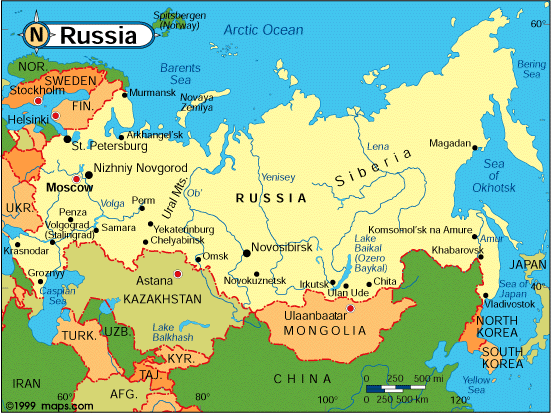For more than a decade, the blame for terrorist attacks in Russia has been laid at the feet of separatists from Chechnya.
There have been more than 10 years of violence, with no let-up.
In 1999 a wave of bombings shook Russia to its core. Some 300 people died in the attacks, which presaged the start of the second war in Chechnya.
Vladimir Putin came to power and promised to crush the insurgency. The war was over in just a few months.
But in 2002, the Chechen conflict again took centre stage – literally. Around 800 people were taken hostage during the Nord Ost theatre siege in Moscow.
After three days the stand-off was over but the death toll was heavy – 129 people were dead.
In 2003, a parliamentary election year in Russia, a suicide attack at a rock concert in Moscow and another on a train in the south-west of the country claimed a total of 61 lives. Chechen separatists were behind both.
But all this paled into comparison to the following year.
2004 was a presidential election year. It was also the year the death toll rocketed. Forty one people died in the Moscow Metro in February. A further 90 were killed when two passenger jets exploded in mid-air.
But the peak of the horror was at Beslan in North Ossetia where militants took an entire school hostage.
After Russian forces stormed the building, 330 people died, 186 of them were children.
Terror returned to the heart of Moscow in early 2010 with a double suicide bombing on the metro in which 40 people died.
In the last two years, a new generation of radical Islamists has come to the fore. They have vowed to deliver terrorism to Russia’s own doorstep.
The day after last year’s underground train attack, President Dmitri Medvedev addressed them directly during a hastily-arranged visit to Dagestan.
Echoing the uncompromising line of his predecessor, he vowed to wipe them out with a series of body blows.
Even though the Kremlin says the region is now under control – and it is rarely mentioned in the media – it is claimed the Russian army and police regularly come under attack.
In Grozny these days, everything seems calm. But for some, Chechnya still has a score to settle.
And now, the rebellion against Russian rule has spread to neighbouring republics amid talk of a “Caucasus Emirate”.
The reality for Russia is that recruitment here is easy among the many who feel bitterness towards Moscow.
Source : euronews

No comments:
Post a Comment